Time To Reassess George W. Bush?
There seems to be an effort underway to reassess the legacy of our 43rd President.
With his Presidential Library scheduled to open on Thursday in a ceremony that will be attended by President Obama and all of the living former Presidents as well as pretty much everyone from the Bush-Cheney Administration, President George W. Bush has been back in the news recently in ways that he hasn’t been since he left office in January 2009. We’ve learned in recent weeks about his post-Presidency pursuit of painting, apparently to the surprise of his closest friends and family. He recently became a Grandfather for the first time when his daughter Jenna gave birth to a girl last week. And, he’ll be sitting down for some of his first post-Presidency interviews (other than those connected to his book tour a few years back) later this week as the press covers the library opening. Finally, a new poll finds that Bush’s approval numbers are far higher than they were when he left the White House:
Bush has a 47 percent approval rating and a 50 percent disapproval, according to a ABC News/Washington survey. When Bush left office, he had a 33 percent approval rating.
Fifty-three percent of Americans disapprove of his handling of the economy, while 43 percent approve. That’s compared with 73 percent disapproving in late 2008 and 24 percent approving.
“It’s not unusual for a former president to advance in public esteem after he’s left the fray of partisan politics, but neither is it guaranteed,” pollster Gary Langer, of Langer Research Associates, wrote in the release.
Bush’s average second-term approval rating was the lower among any president in modern polling, Langer noted. The poll only asked about Bush’s approval rating and not of any other presidents. Still, Langer noted that “in polls four to five years after the end of their presidencies, Bush’s father gained 18 points in approval, but Bill Clinton slipped by 4 and Ronald Reagan lost 12 [percentage points].”
To some degree, then, Bush’s jump in the polls is part of the same process that other former President’s have gone through in the years after they left office. Indeed, it’s likely the case that once these men are out of office, Americans tend to begin to have a more charitable view of their legacies than when they were in office and actually in charge of getting things done. Indeed, even Richard Nixon found that he was able to remake himself as something of an elder statesman in the foreign policy field in the years after he left office, ironically finding an eventual sympathetic ear in the person of former McGovern campaign staffer William Jefferson Clinton. So, it’s not surprising that Americans might come to have a more sympathetic view of the 43rd President as time goes by.
All of this sentimentality regarding the Bush years that the library opening is engendering is causing some Bush loyalists to make the case that their hero was judged too harshly by the public and that history will vindicate him. One version of this campaign to rehabilitate the 43rd President can be seen in an Op-Ed by Stephen Knott, directs his animus toward scholars who were already speaking negatively about Bush before his Presidency even ended:
All of this overheated rhetoric and fear-mongering has come from academics who profess to live the life of the mind. In their hasty, partisan-tinged assessments of Bush, far too many scholars breached their professional obligations, engaging in a form of scholarly malpractice, by failing to do what historians are trained to do before pronouncing judgment on a presidency: conduct tedious archival research, undertake oral history interviews, plow through memoirs, interview foreign leaders and wait for the release of classified information.
There is a difference between punditry and scholarship. The latter requires biding one’s time and offering perspective as the evidence emerges and the passions of the day cool. An assessment of Harry Truman’s presidency looks quite different today than it did immediately after he left the White House in 1953. And no historian, especially Schlesinger, would have predicted in 1961 that 21st-century scholars would rank Dwight Eisenhower among the nation’s greatest presidents.
George W. Bush’s low standing among academics reflects, in part, the rise of partisan scholarship: the use of history as ideology and as a political weapon, which means the corruption of history as history. Bush may not have been a great president; he may even be considered an average or below-average president, but he and — more important — the nation deserve better than this partisan rush to judgment.
To some degree, Knott may be correct that some scholars who have written about Bush, especially during the years he was in office, were motivated in at least some small part by their own partisanship. After all, it’s kind of difficult to determine what the judgment of history is going to be with regard to the Bush Administration while that Presidency is still ongoing, or even only four years after he’s left office. As with the recent reassessments of Presidents ranging from Truman and Eisenhower to George H.W. Bush and Calvin Coolidge, it some sense it requires the passage of time, and the cooling the political feelings, to really be able to make an honest assessment about a President’s performance in office. At the same time, though, it strikes me that Knott wears the same kind partisan blinders as the historians he criticizes in that he seems to view any negative evaluation of the Bush era as being blinded by anti-Bush sentiment. In reality, there are plenty of reasons to have a negative view of the Bush Presidency that go beyond partisanship. In both the domestic and foreign policy spheres, the Administration engaged in policies that were just plain wrong and which, in some cases, were seriously misguided. Say what you wish, for example, but it is doubtful that history will be kind to President Bush’s decision to engaged in an unprovoked war in Iraq, especially given the fact that he did so without any real plan for how the U.S. military would handle a post-Saddam Iraq, thus leaving us largely unprepared for the rise of the insurgency in the spring and summer of 2003. No matter how much Americans come to think of George W. Bush as a nice guy, I doubt they’re going to forgive him that mistake.
Another example of the ongoing campaign to rehabilitate George W. Bush came today from Jennifer Rubin, who thinks it’s Bush’s time again:
Aside from the “memories fade” point, many of his supposed failures are mild compared to the current president (e.g. spending, debt). Unlike Obama’s tenure, there was no successful attack on the homeland after 9/11. People do remember the big stuff — rallying the country after the Twin Towers attack, 7 1/2 years of job growth and prosperity, millions of people saved from AIDS in Africa, a good faith try for immigration reform, education reform and a clear moral compass.
And, it turned out that the triumvirate of Iraq-Iran-North Korea really was the Axis of Evil. Unlike the current president, who’s played politics with the withdrawal of U.S. troops from Afghanistan, President Bush took huge political risks to back the surge in Iraq, which worked. He is responsible for one of the most popular and fiscally sober entitlement plans, Medicare Part D. He did not foist a grandiose unpopular and exorbitant program like Obamacare on the public. And then there were his tax cuts, 99 percent of which were approved by the most liberal president in history. Even the TARP program, reviled by conservatives, can be credited with helping to calm the markets and stabilize financial institutions.
To the left’s horror, it turns out that most of his anti-terror fighting techniques (e.g. the Patriot Act, enhanced military commissions, Guantanamo) were effective and remain in place. Even the dreaded enhanced interrogation, according to two CIA agents and the former attorney general, contributed to our locating and assassinating Osama bin Laden. The essence of his view on Islamic terror — that we are at war with those espousing a jihadist ideology – has been confirmed, painfully so.
Hey, he’s not so bad! In fact, to some degree his qualities and accomplishments were taken for granted. Only when we see a robotic, cold president like Obama do we remember fondly the tender, tearful love of country Bush often conveyed and the steely anger directed at our enemies. Only when a president completely bollixes up our relationship with both the Palestinians and the Israelis do we recall how warm and productive was our relationship with the Jewish state under Bush and how Israel proved willing to take “risks for peace” under the right circumstances. And only when we see our current president kick our friends and kowtow to our foes can we fully appreciate a president with strong personal bonds with leaders (e.g. Tony Blair) and fierce determination not to appease our foes.
To a large degree, this strikes me as a huge amount of wishful thinking on Rubin’s part. If you actually look at the polls on the issues she writes about, you’ll find that the public largely disagrees with many of the positions that Bush took during his Presidency, and supports the actions that Obama has taken which she criticizes. Indeed, to a large degree the policies of the Obama Administration in areas such as a the “war on terror” aren’t substantially different than the Bush Administration’s policies were and, in some cases (i.e., the drone campaign) are arguably more aggressive than Bush ever tried to be. Rubin would have you believe that this uptick in Bush’s approval numbers constitutes some kind of endorsement of neo-conservative foreign policy and a rejection of the policies of the Obama Administration. Given the results of the 2012 election, that is obviously absurd. Instead, what we’re looking at here is the same bump in the polls that every ex-President gets when they leave office. Now that Bush isn’t in office anymore, people are inclined to view him more charitably. That doesn’t mean they endorse the policies that the heirs of the Bush Administration would want us to adopt.
I’ve been harshly critical of President Bush for some time now. On the domestic side, his fiscal policies were utterly disastrous. At the same time that he was cutting taxes, he was massively increasing spending through domestic programs like Medicare Part D and No Child Left Behind and two wars that were not financed by any special means. He increased discretionary spending at a faster rate than any President since Lyndon Johnson. He signed into law a campaign finance bill that he had publicly stated he believed was unconstitutional. He authorized warrantless wiretapping, supported laws like the PATRIOT Act that stripped away important 4th Amendment protections. He made airport security a function of the Federal Government. He authorized the use of enhanced interrogation techniques and extraordinary rendition in the name of his “war on terror.” And, he set American foreign policy on a course that may well lead us to things we we are likely to come to regret in the future. He was, in other words, not all that great of a President in my opinion and, depending on how the future goes, possibly the one responsible for a world that isn’t going to be very pleasant.
Given all that, I’ve got to say I’m rather skeptical of the rehabilitation project that Knott, Rubin, and others seem to want to engage in. The American people are forgiving, but they’re not stupid and they’re not going to forget the eight years of the Bush Presidency all that easily. At this point, Bush’s approval numbers are rising for largely the same reason that he was able to win the Presidency to begin with. Everything else aside, George W. Bush strikes me as a pretty nice guy, and the American people are pretty forgiving of nice guys. One they make mistakes, though, they’re unlikely to trust them very much. This Bush “rehabilitation” will only go so far before it runs headlong into the reality of what people actually remember about the Bush years, and the overwhelming evidence that they don’t want to return to those days.
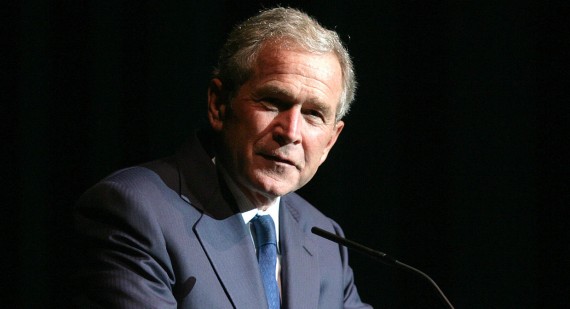

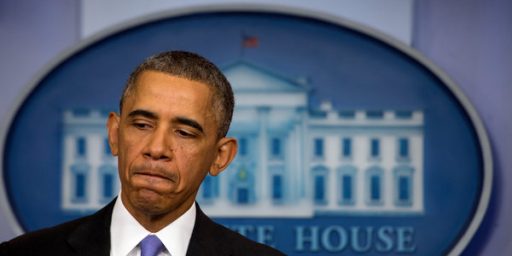
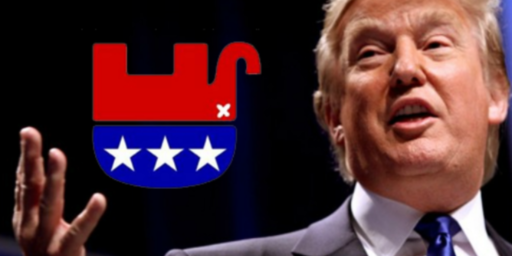
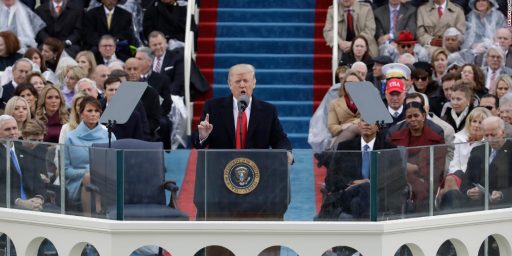
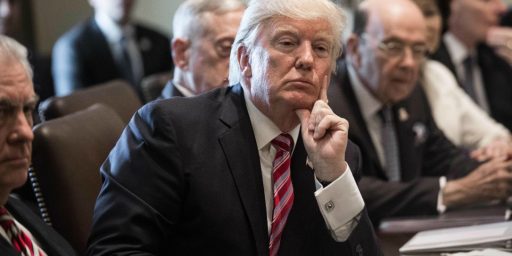
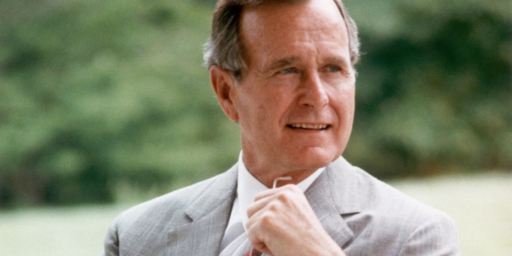
If Rubin didn’t have wishful thinking about Republicans, she wouldn’t have any thinking at all.
I believe that the continuation of some Bush domestic and foreign policies by Obama may partially account for the uptick in Bush’s approval ratings. While partisans on both sides emphasize the differences between the two, many recognize the similarities.
Regarding the I-word, possibly the most negative comparison of Bush would be a comparison with his father. Regardless of H.W.’s personal feelings on the matter, the elder President’s limited response to the invasion of Kuwait secured a coodinated effort by many nations to the invasion. The son did not enjoy such a consensus when he tackled Iraq.
First of all, what? There was a pretty sizable recession/slowdown for his first two years in office. I know this well, because I graduated college into the really really crappy job market of 2001.
Yeah, torturing folks really shows off your moral compass
?!?!??!?!
FISCALLY SOBER? ?!@??!?!?!??@(&$*@$&@*(@$
Absence makes the heart grow (a little bit) fonder.
@Ben:
The best part of that line was the “1/2” Rubin tacked on, lopping off the bit where the financial system and housing market went off a cliff and trillions of dollars of wealth vanished in a historic freefall.
The very fact Knott framed the final/take away sentence of his article in this way is exceedingly telling. At best, it seems to read as, while he wasn’t great, chances are Bush was not really as bad as most people think.
Talk about damning with faint praise. It seems like, for even true believers, the lemonade still remains pretty bitter in this case.
George Bush was a nice man but a terrible president. Took us into a war in Iraq that was totally unecessary. His adminstration knew that at the time but they were going to go to war come hell or high water. What an awful legacy! President Obama was wrong to let the Bush adminstration off the hook over the Iraq war. He should have held them acccountable with all the lives lost on both sides. Wonder which wall in his new library George Bush will hang the “Mission Accomplished” banner on!!
Spent money we didn’t have.
Started a war with a country we didn’t need to which to this day suffers bombings and destruction weekly and is in bed with Iran.
Ignored Afghanistan for too long.
Embraced torture.
He had an opportunity after Sept 11 to unite the country and lead the country down a certain path and then he f$#!ed it all up.
Ah, no. Time to consider instead the seating of grand juries to probe matters of war crimes. It stopped being political once the order to torture was given. This man admitted to a national recorded audience that he gave the order to torture, and would do it again.
To support George W Bush is to support a coward, and a liar. No amount of library openings are going to change that. Obama’s attendance simply affirms his role as Accomplice In Chief.
There are not “two sides” to the torture debate. Only an illegal lack of courage.
This is the line where Rubin inarguably crosses over to self parody:
Little starbursts!
Has anyone tried to rehabilitate the image of that cyborg sociopath Dick Cheney? Now I blame him for most of the bad things that happened during Bush 43 administration.
@Ron Beasley: He wasn’t the President. Bush could have said no to him. That’s what leaders do – being the Pres and CINC means you are responsble. I think we have room to try both though.
Too. Soon.
@Mike:
Started his term by suspending talks with North Korea.
Humiliated the South Korean president by repeatedly, publicly undermining his
“sunshine policy.”
Failed to have a coherent strategy for dealing with North Korea right up to watching them become a declared nuclear power.
@Jeremy R: Thanks for refreshing the memory. Hard to keep track of all his screwups.
Let’s see: a completely unnecessary war in Iraq that has cost us trillions of dollars, a financial collapse that caused the loss of $18 trillion dollars in wealth, and two tax cuts taken while waging 2 wars – I know I’ve reassessed, he’s worse than we thought.
I think our image of W. will largely be similar to President Carter’s. President Carter–despite his many successes and failures while in office–is judged by what he did post presidency. That is, people will castigate his presidency in the same breath that they call him a saint.
If George W. Bush follows in the footsteps of his dad and Clinton–using their title, political clout, and network of donors for philanthropic causes–then we will see a populace that loves the guy personally but never wants a similar presidency again.
(And I already feel badly for the Republican candidates 20 years from now who will reflexively be compared to Bush no matter what, just like Obama was to Carter.)
I understand the nuance required for judging presidents, and I understand that W was a somewhat more complex character than his detractors (of which I was one) wanted people to think, but he will always and forever be judged as a disaster. And rightfully so.
The war in Iraq is an unforgivable sin.
@Jeremy R:
Newsweek, May 27, 2002:
^ Perhaps a good example of Bush conveying that “steely anger” at our foes that Jennifer Rubin so fondly recalls.
GHW was a talented foreign policy president. W refused to listen to his father on Iraq, he also refused to listen to Brent Scowcroft and James Baker. Instead, he let Cheney lead him around by the nose, and the Iraq debacle was the result.
But, Cheney’s cronies made billions, so mission accomplished.
Nope, still not seeing it. One of my friends, a brilliant chess player and all-around good businessman, had to deal with Bush when he was running around Texas. “The stupidest individual on two legs I have ever met” was his opinion.
You know what else came out this week? An independent report that proved beyond a shadow of a doubt that the United States tortured people in a systematic way in violation of international law. If we actually had some kind of authority with the power to punish American leaders who violated international law, Bush and Cheney would be indicted as war criminals. Something which, of course, does not exist now. This, however, does not mean that Bush and Cheney are not guilty and I guess that as time goes on this will become more and more evident.
I am certain that history will remember him as the worst president in my lifetime, and as profoundly anti-American.
@ Neil…
I think in retrospect Carter did some good stuff…for instance nominating Volker and de-regulating gas prices went a long way towards Reagans economic success. As much as anything Reagan did in fact.
Bush43…not so likely.
At any rate…the Rubin column reads like fiction to me.
Let’s see…
We’ve gone from “rigorously interrogate foreigners” to “assassinate American citizens.”
We’ve gone from “invade a Muslim country to overthrow a brutal dictator” to “topple relatively well-behaved despots and replace them with Islamist extremists.”
We’ve gone from a top unemployment rate of 7.8% to a top unemployment rate of 10%.
We’ve gone from a federal debt of around $10 trillion to a debt of over $16 trillion.
We’ve gone from having detainees in Guantanamo to having detainees at Guantanamo.
Yes, the times, they are a’changing…
While it is too early to really have a perspective on Bush as president, our opinions and thoughts about other presidents changes with time and the shaping of events. When I was a child Harry Truman and Dwight Eisenhower were not popular or well thought of. Within a few years Truman went way up in the opinions of historians and most people. At that time we were bogged down in Vietnam and everyone seemed to look back at Truman’s toughness and leadership in world affairs.
Eisenhower was regarded by many as old, boring, and lethargic, probably because there appeared
to be a comparison with his successor, John Kennedy. But over the years Ike has been reassessed, with historians now regarding him as a shrewd, skillful leader. There was never any problems with his military leadership.
To me, the most interesting president when considering changing opinions over the years has been Richard Nixon. For a long time regarded with disdain as a crook, many now are taking another look at his pragmatism, and things he did that even then were not Republican: trips to China and Russia, starting EPA and other agencies, and increasing the size of government. I do not think now that he would even be considered as a Republican candidate.
@Tyrell: So what you’re saying is that the Republican presidents are going from bad to worse?
I agree….
I occasionally find myself thinking that I’ve warmed up to W a bit since 2008, but then I realize I’m just remembering Will Ferrell’s parody of him. That Bush is adorable.
After Reagan left office, Republicans spent a great deal of money burnishing his reputation and campaigning to have stuff named after him. He didn’t get canonized as Saint Ronald on the naked strength of his accomplishments. Given enough money, I have no doubt they could do the same for Bush. I doubt they have the will.
I think the only way Bush could come to be viewed more positively is if Republicans accomplish their dream of a permanent majority and institute a national version of the Texas School Book Commission that would write all of Shrub’s failings out of the history books.
GWB was the worst President in the last 100 years. He sought the office for all the wrong reasons, and then performed worse than badly. I’m not sure it became a banality of evil thing, or simply the layered tragedy of incompetence. The result was the same, a democracy subverted for for war, and as the Latino says, torture.
@Jenos Idanian #13:
Speaking of banality, not one of those show a useful engagement withe the issues.
I threw up half way through Rubin’s quote. What a lying, spinning hack. What the hell is wrong with the Washington Post to pay for such garbage.
@reid: Oh, Rubin is known for her eagerness to try to polish turds.
This one’s a biggie, IMHO.
Jenos….
You are blithely untethered from reality.
Nothing else needs to be said.
@grumpy realist: Yes, a Texas-sized turd. That such obvious BS is written and accepted as serious at a top newspaper nearly makes me weep.
I’m also a little disappointed that Doug couldn’t bring himself to use the word “torture”.
@Ron Beasley: So do I. Cheney was calling the shots for his puppet the doofus chickenshit George W Bush.
One of my aunts, who’s about as liberal as they come, met Bush and has said he’s a very likable guy. I always hear people who meet him say that. I despised him throughout his entire presidency, but the funny thing is, the claim that he’s a “nice guy” in person doesn’t surprise me all that much. My personal dislike for him (beyond the fact that I think he was a disastrous president) wasn’t based on denying that he could be warm and affable, but rather on a consistent feeling that he didn’t take the consequences of his job very seriously. I think of the time he joked about searching for WMDs under his podium, or the time he met McCain backstage during one of the 2000 primary debates and said basically, that it was nothing personal. Or, if you choose to take the word of Tucker Carlson, the time he made fun of the woman he let be executed in Texas. I never saw evidence that Bush viewed politics as anything more than a big game, or a big joke, rather than something you should ever let yourself worry about how it affects the lives of millions. This is yet another reason why I cannot see the Iraq debacle as a well-meaning blunder, as some of its former defenders have suggested. Bush’s callous indifference to the gravity of his own decisions made the catastrophes they led to unforgivable.
@Rob in CT:
If only he was a little more absent…. Like going back to January, 2001. That would make my heart grow a whole lot more fonder.
Franklin Roosevelt approved of Bush’s tax cuts? How?
Oh wait. She still thinks Obama is some sort of flaming commie socialist pinko. *eye roll*
I actually like him better than when he was in office, it may indeed be the absence/fondness effect. But he refuses to openly criticize Obama (despite the beating Obama constantly doled out towards him on the campaign trail). And more and more, I blame things on Cheney and am simply disappointed that Bush didn’t shut him out earlier (he did apparently start excluding Cheney from his decision making late in his Presidency). I also think he, like Obama, was well-intentioned; I can’t honestly say the same for Cheney.
But by no means should the above be construed to imply that Bush did a good job. It just wasn’t the 100% complete disaster that I once thought it was. Maybe only 98% disaster.
@Tyrell:
Nixon looks good only because he was moderate in comparison to subsequent Republican Presidents.
@ Franklin
My theory is that Bush’s mother told him to get his act together after the 2006 election, and Baker started playing a behind the scenes role while Cheney and Rove got a downgrade.
I have never understood why Eisenhower and Reagan are so well considered even by historians. Eisenhower as Supreme Commander of the Allied Forces in Europe was responsible for allowing the Russians to overun Berlin and a large part of Eastern Europe, by a strategy that delayed attacking Germany, by diversions into the Alps, and it was the British and other allied generals who knew the consequences and acted. It was a British push northwards that secured Denmark from the Russians. Eisenhower was also involved in the destruction of the bonus army in 1932 (with MacArthur and old blood and guts Patton), the closest he ever came to the front line. Reagan turned the US from a net lender to the world to a net debtor, a place in which it has remained ever since.
As for GWB, Iraq was an Oedipal war, it was about his daddy’s efforts in the first Gulf War. It was a vanity war. As was the most of his presidency. What the historians may say doesn’t matter much, because America will still be recovering from the GFC in 20 years time, and that will be his legacy, and it will be written in the landscape in the empty houses, ruined lives consequent on his, as Kylopod says, “indifference to the gravity of his own decisions” .
Is there a bigger hack than Jennifer Rubin working at a major newspaper today?
(And I say that knowing full well what the competition is like).
@C. Clavin: Jenos….
You are blithely untethered from reality.
Nothing else needs to be said.
You remind me of wr in a way. You seem that if you toss out a few meaningless generalities and vague insults, that suffices. (Actually, if you look at the upvotes/downvotes, you might have a slight grounding in reality.)
But if you’ll humor me, just what in particular did I get wrong? I thought I checked each statement I made before I hit “POST COMMENT,” but if I got something wrong, please correct me.
And what I was attempting was that, considering what Obama has achieved since he took office, a “reconsidering” of Bush’s legacy seemed appropriate vis-a-vis to what we replaced his policies with.
@Jenos Idanian #13: Sorry, but insults are all you deserve. Say something worthwhile one day and see what happens.
Not. that I’m holding my breath.
@Wr: In your case, insults seem all you’re capable of. So I should probably stop hoping for anything more.
‘Cuz you’re sure not capable of rebutting any of the actual points I made about Obama, are you? Not even one.
@Doug Mataconis:
You seriously consider this a problem? I’m not overly fond of the TSA, but they’re much better than the previous system.
@Steven L. Taylor: Maureen Dowd.
It’s especially comic to watch Rubin natter on about Obama being “cool and robotic.” This is the same twit who was wetting her pants over Mitt Romney.
(Oh, and let’s not forget the Magic Dolphin Lady, who hasn’t stopped fellating Reagan’s corpse since he died.)
@Tyrell: Part of being a crook is being a pragmatist, so Nixon actually did things that made sense from time to time, like going to China, or conceiving a very socialistic health care plan.
But of course, it didn’t change the fact that he was a crook and a nasty person as well.
Nixon was far more intelligent than Bush the Lesser. As such, when he put his mind to it, he could do smart things. Not all he did was smart, of course (e.g., wage/price controls, directed IIRC by Cheney!).
Bush was… not stupid, necessarily, but incurious, unserious and easily manipulated. In another era, it might not have been so bad (while of course I disagree with the tax cuts, if it had just been the tax cuts w/o 9/11 to deal with, who knows, maybe he’d have been just mediocre instead of a disaster?). I don’t think there’s any doubt that Cheney’s influence, and Dubya’s failure to resist it (until perhaps ’07-’08, when the damage had been done) was key to the disaster of the Bush II presidency.
Jennifer Rubin is a hack to her core (in other words, she has no core). Some people write hackish pieces from time to time. Rubin writes them every time.
Anybody that mentions “The surge worked” should be punched squarely in the throat. There would have been no need for a search if the Bush team had listened to the experts that his “adventure” would have required around 500K personnel in-country. Of course, that assesment cost Eric Shinseki his job as Army Chief of Staff.
I also don’t want to hear about Cheney screwed him up. Part of the intangibles of leadership is having a knack to handicap who is credible and who isn’t in matters beyond your expertise. If you can’t do that, you’re in over your head and shouldn’t even be in the seat. Its obvious his team building skills from his Texas governer stints were overstated because he gave weight to the least credible voices in his administration. Still like the guy though. I could watch his African dance on Youtube for hours….
@grumpy realist: Fellating?!?!? LOLLOLLOLLOLLOLLOLOLOL!!!!!
Nixon was a flawed man who strove to do great things.
That apparently trumps better men who don’t try so hard.
By orders of magnitude. Nixon really was a brilliant man, it’s tragic that his personality flaws did so much damage and doomed him.
Cheney was a supposedly trusted advisor who was in charge of picking the best person to be VP. He chose himself. If one’s spider sense is not tingling at this point, they have crossed the line into true cluelessness.
@Rob in CT:
I’d also make a distinction between policies that had a lot to do with the individuals in office and those that were more a reflection of the party. Almost any Republican elected president in 2000 would have pushed for massive tax cuts aimed at the rich. Maybe not McCain, but then McCain’s opposition to the tax cuts was part of why he didn’t get the GOP nomination. In other words, presidents are to some extent instruments of their party.
In contrast, the Iraq War was very much a Bush/Cheney pet project. I have my doubts that most other Republicans would have gone after Saddam at that point–not even the trigger-happy uberhawks who have spent the last decade defending the invasion and questioning the patriotism of those who opposed it. That’s not to say there would necessarily have been good foreign policy choices in another Republican’s hands, but the U.S. attack on Iraq in the aftermath of 9/11 may be the most…well, above all, out-of-the-blue war decision a president has ever made. Certainly, it was not something you could have predicted from the simple fact that a Republican was in office.
The interesting thing is that the Bush presidency was a failure on both these fronts. On the one hand, a lot can be attributed to the administration’s incompetence. On the other hand, part of the problem ran deeper and reflected the state of the GOP. It’s this second condition which has actually worsened since Bush left office. After witnessing the Tea Party Congress, Boehner’s work as Speaker, and Mitt Romney’s incoherent campaign, I am seriously not sure that a Republican president would be capable of governing successfully today. Incompetence seems to be systemic, not just a trait of a particular politician.
One of the first things the Bush administration got to work on after he took office was making it harder for people to have access to product safety information, particularly tires – a product people trust their lives to.
I think he would have found ways to screw the pooch.